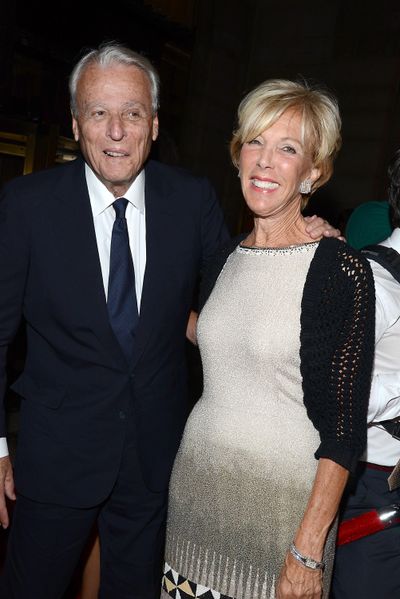William Goldman: the wit and wisdom (’Follow the money’) of a legendary Chicago-born screenwriter

In his adventures in the screen trade, which inspired his zingy 1983 Hollywood memoir of the same name, Chicago-born William Goldman won two screenwriting Academy Awards and the hearts of millions who liked the way his wiseacres talked.
Goldman was the Ben Hecht of the New Hollywood era, a wag with highly commercial Old Hollywood instincts. Goldman’s favorite movie growing up was, in fact, “Gunga Din” (1939), for which Hecht and fellow “Front Page” author Charles MacArthur wrote the rollicking story that had little to do with the Rudyard Kipling poem. Something must’ve clicked for young William, sitting there in the dark, watching Cary Grant and company romping through India (as played by California), hustling, conniving, courting disaster.
Goldman died Friday in New York at the age of 87. The screenwriter endured an emotionally harsh childhood. In various interviews and writings he dealt, tersely, with stories of an overbearing mother and an alcoholic suicidal father, who killed himself when 15-year-old Goldman was attending Highland Park High School. He graduated in 1948; his brother, future playwright and screenwriter James Goldman, graduated three years earlier.
After Oberlin College, two years in the Army and graduate studies at Columbia University, William ventured forth as a novelist and, less successfully, a playwright. Three Broadway flops was enough. He “fled” to Hollywood (his word), and a star was born.
Early efforts such as “Harper” (1966), starring Paul Newman, revealed a tongue-in-cheek tough guy behind the typewriter. Then came the gold mine: “Butch Cassidy and the Sundance Kid,” with Newman, Robert Redford, Katherine Ross and “Raindrops Keep Fallin’ on My Head.” Wry, antiheroic yet totally in love with its antiheroes, the film made Goldman rich and famous. The studio bidding war for the script, lean but full of jokes, netted a then-stunning $400,000.
High among his writing skills, Goldman knew the value of the running gag, and careful deployment of repetition for comic effect. Think of “Butch Cassidy”: “Who are those guys?”
Think of “The Princess Bride” (1987), which Goldman adapted from his own novel: “Hello. My name is Inigo Montoya. You killed my father. Prepare to die.”
“Follow the money” came from “All the President’s Men” (1976), for which Goldman won his second Oscar. “Marathon Man,” that same year, gave the world “Is it safe?” over and over, murmured quietly by Laurence Olivier, dental implement in hand.
“Nobody knows anything.” This was Goldman’s money line in “Adventures of the Screen Trade,” on the topic of Hollywood’s neuroses and brutally unreliable money men. And very few women.
In Goldman’s adaptation of the Stephen King novel “Misery” (1990), a devoted psychopathic fan (Kathy Bates, who won an Oscar) spends some nasty quality time with her writer hero, played by James Caan.
“We went to Harrison Ford, Michael Douglas, Al Pacino, Robert De Niro, Dustin Hoffman, Robert Redford, William Hurt, Kevin Kline, Richard Dreyfuss, Gene Hackman and Warren Beatty,” Goldman said in a Tribune interview in 2000. “None of them would do it. They don’t take roles where they’re not in charge, especially if a woman is. In ‘Misery,’ the woman has the power.”
The Goldman brothers, William and James, wrote different kinds of material, yet they shared a fondness for exuberant anachronism. James Goldman’s 1966 play “The Lion in Winter,” set in the 12th century, received both praise and shrugs in its Broadway debut, but two years later the film version hit a sweet spot and found a wide audience, no little thanks to Katharine Hepburn (as Eleanor of Aquitaine) commenting, “Well, what family doesn’t have its ups and downs?”
Similarly, brother William’s “Butch Cassidy” script had no patience for stuffy-sounding period argot. Goldman, along with Newman and Redford, created sexy, newfangled icons practically overnight.
Goldman had an instinct for casual brutality; a flair for the rug-pulling punch line; and an admiration for gallantry in the face of certain death. At his best, he nailed all three at once – the triple axel of the screenwriting trade. Think of the cliff, and Butch and Sundance about to jump. Sundance confesses he can’t swim. “Are you crazy?” laughs Butch. “The fall’ll probably kill ya!”
Some lines are just waiting to be written. Then they’re recycled to death by inferior writers, for generations. Because not every generation produces a William Goldman.
He knew his share of failure, but he found something useful to share about his bouts of self-doubt at the keyboard. He wrote this in “Adventures in the Screen Trade.” It has been recirculating on social media like mad since his death:
“Writing is finally about one thing: going into a room alone and doing it. Putting words on paper that have never been there in quite that way before. And although you are physically by yourself, the haunting Demon never leaves you, that Demon being the knowledge of your own terrible limitations, your hopeless inadequacy, the impossibility of getting it right … but if you’re a writer, that’s what you must do, and in order to accomplish anything at all, at the rock bottom of it all is your confidence. You tell yourself lies and you force them into belief: Hey, you suckers, I’m going to do it this one time. I’m going to tell you things you never knew. I’ve – got – secrets!”